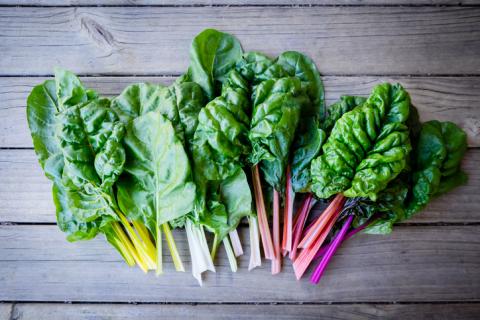For a Younger Brain, Eat More Leafy Greens
Researchers from Rush University Medical Center in Chicago studied a group of almost 1,000 older adults, and found that those who ate green leafy vegetables every day experienced a slower decline in memory and thinking skills. “This difference was equivalent to being 11 years younger in age,” said study author Martha Clare Morris, ScD.
“There continue to be sharp increases in the percentage of people with dementia as the oldest age groups continue to grow in number. Effective strategies to prevent dementia are critically needed,” said Morris, who is a nutritional epidemiologist. “Adding a daily serving of green leafy vegetables to your diet may be a simple way to help promote brain health.”
There are plenty of choices if you’d like to increase your intake of these nutritional powerhouse foods, including:
Collard greens / Mustard greens / Turnip greens
Kale / Spinach / Romaine lettuce
Watercress / Dark green leafy lettuce / Endive
Escarole / Arugula / Chard / Bok choy
The Rush University experts recommend eating at least one serving per day of leafy green veggies. One serving equals two cups of raw greens, or one cup of cooked. Greens retain the most nutrients if you eat them uncooked or lightly steamed, but even fully cooked, they offer a good nutrient boost. The United States Department of Agriculture also notes that people tend to eat a larger amount of greens when they’re cooked.
Greens offer such a variety of flavors and textures that you could create a different salad every day! And eating greens in a salad isn’t the only way to enjoy them. Make a red romaine lettuce wrap instead of a burrito. Add greens to a smoothie. Use in stir fries and soups. At the last minute, stir raw baby kale or arugula into your warm spaghetti for a pleasing wilted veggie garnish.
Just a couple of safety notes. First, it’s important to clean greens. Right before consuming, run them under cold water, or immerse in a bowl of water, or use a salad spinner as recommended. Some experts say that even bagged “ready to eat” salads could us an extra rinse.
Also, although “the more the merrier” is usually true when it comes to greens, people with certain diseases or who take certain medications may be advised to avoid some types of greens. Talk to your doctor before making any major changes in your diet.
